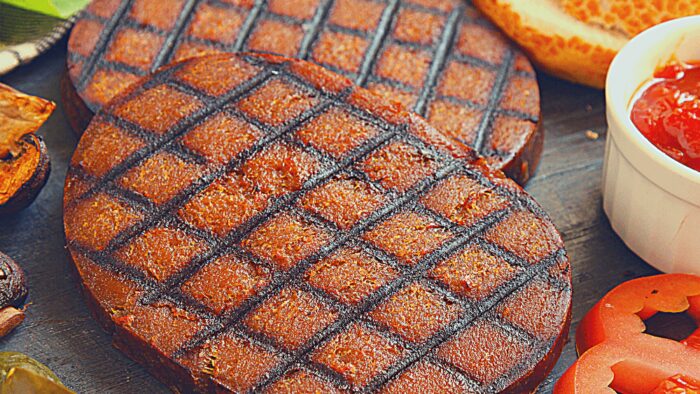Be the Healthiest Vegetarian on the Block
Vegetarians have always held a special place in my heart, the part of my heart that cries out WHY? I don’t understand the appeal, especially the more extreme vegan types. It doesn’t seem natural.
I know what you are going to say, I am being too harsh, but that’s what you love about me. I will now get serious and offer my amends by offering some tips to make you the best and healthiest vegetarian on the block.

There are some benefits to a vegetarian diet, an emphasis on grains and plant proteins and Bessie gets to run free.
There are however some downsides. Some veggie heads just avoid red meat but will have fish or eggs and others will be stricter such as vegans with no animal products whatsoever.
With vegans I have the biggest health concerns, but all should take care to ingest adequate nutrients.
The most common deficiencies that than occur in most vegetarians are:
Vitamin D
Found in egg yolks, fortified milk. Vegetarians must try fortified foods, sunshine or supplements. Take special care for breastfeeding vegan moms.
Vitamin B12, and riboflavin B2
Found red meat, poultry seafood and milk products. Vegetarians should try dark leafy greens, enriched whole grain breads, legumes and nuts.
Calcium
Found in milk products. Vegetarians who avoid milk should drink fortified soy beverages, dark leafy greens and fortified foods.
Iron
Found in red meat, poultry, and seafood. Again stick with fortified foods, leafy greens like spinach in particular.
Try raisins, prune juice and tofu. Note that non- heme iron in plants is less well absorbed than heme iron in meat. Also, it takes a larger amount of plant product to reach an equivalent in a smaller meat portion.
Protein
Found in larger amounts in animal products, can also be found in many milk product. Plant products like soy and legumes for have protein but ounce per ounce not as much as animal protein of the same amount.
Zinc
Found in shellfish, red meat, dark meat poultry and egg yolks. Vegetarians can use nuts, legumes or whole grain cereal.
Most vitamins can be successfully acquired from a vegetarian diet; the two big concerns still remain iron and protein.
Vegetarians who are pregnant or breastfeeding are at higher risk to create protein or iron a deficiency for their fetus. Some vegetarians do change their eating habits during their pregnancy.
In terms of weight loss, be aware that many packaged or frozen veggie foods are filled with sugars.
In addition the vegetarian diet is high in carbohydrates (get our FREE Carb Manipulation Protocol here) and not always low in fat, which is a bad combo for weight loss.
Protein builds muscle and muscle burns fat, so a lack of complete proteins may affect your muscle tone and fat burning.
My best advice is eating some meat, after all it is what allowed us to evolve!
